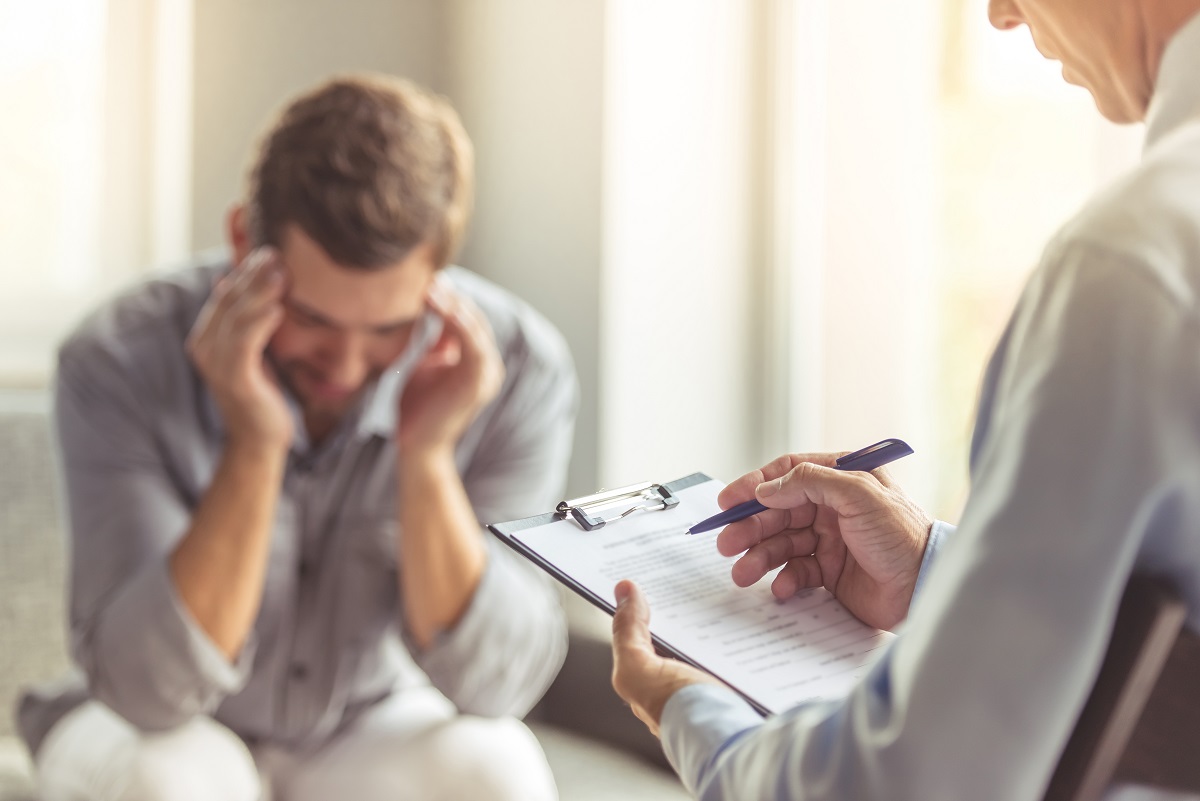Depression
See the complete content in Infermera Virtual
1. What is understood for depression?

The depression is a mental disorder that is characterised for a low mood, the loss of interests or of the skills to enjoy things that earlier produced pleasure, guilt feelings, the lack of self-esteem, sleep disorders or of the hunger, sensation of tiredness and lack of concentration.
2. Main symptoms
Emotional or emotional symptoms
- Pathological sadness, frequently without justification or of an intensity and disproportionate duration. It is the symptom par excellence of the depression.
- Toppling, distress, suffering, moral pain.
- Anhedonía or loss of the skills to enjoy.
- Anxiety, interest, uneasiness, sensation of lack of air and of lump in the throat or in the stomach.
- Disforia or irritability, with disproportionate reactions that they have repercussions in the relationship with the rest of people.
Cognitive symptoms or of the thought
- Inhibited or retarded thought.
- Effects in the report, in the attention and in the concentration.
- Ideas of guilt, ruin or hypochondria delirium.
- Self-esteem or underestimate cancellation staff.
- Ideas of suicide.
Behavioural symptoms
- Clinofilia or trend to happen the most part of the day in the bed.
- Inhibition psicomotriz. It usually observes a delay in the movements and in the language, and inexpresión facial. Nonetheless, sometimes, can happen the opposite and the person can show restless and, even, agitated, states related to the anxiety and the anguish.
- Emotional lability or impossibility to cry.
- Social isolation. The interpersonal contact, conversations is avoided or to go out of the address.
Somatic symptoms
- Generalised exhaustion.
- Alteration of the hunger with profound effects in the weight.
- Tachycardia, palpitations, sudoración and vertigo.
- Digestive alterations, estreñimiento, dry mouth, etc.
- Pain in several locations; the more frequent is the headache.
- Sexual alterations: decrease of the libido, erectile dysfunction, absence of menstruation, etc.
- Alteration of the rhythm vigil-dream: I reveal precocious with decrease of the hours of dream; increase of the hours of dream (hipersomnia) or investment of the rhythm (to sleep during the day and be awake at night).
- Morning aggravation of the sintomatología depressive and improvement of the depressive symptoms to the atardecer, moment in which one can even achieve the state anímico previous to the illness.
3. There is processing?
The medication is one of the tools more significant in the processing of the people that they suffer depression.
So that the processing results cash it is significant to take medicines according to the medical indications, without modifying the dose nor to abandon the medication, although depressive symptoms have disappeared, since it exists the risk of relapse
4. How long have to follow with the processing?
It is owed to fulfill the processing during the necessary time, stipulated by its practitioner.
To avoid oblivions in the drug therapy is recommended:
- Organise the medication in such a way that it can take easily and in the right moment. Have her in an accessible place and to use strategies to avoid oblivions, as to put an alarm in the mobile phone or to use a pastillero daily or weekly.
- Add the takeover of medication in the daily activities; for example, to do to coincide the takeover in the morning with the breakfast.
- Know until what day medication is had and to request appointment in good time to collect recipes, and to avoid to stay without medication.
- It is recommended that the family controls the medication, to avoid have more recipes of the necessary ones and not to accumulate medications, prescribed or of free sale.
5. Nobody me understands...
When a person is depressed, usually isolates socially, even of the family unit, and him is difficult to communicate. General has an attitude of indifference to everything that him surrounds.
6. How long will last this?

In the depression can differentiate two phases: The acute phase and the phase of recovery.
Acute phase:
It is the realised period since the person has depressive symptoms and initiates the drug therapy and/or psychosocial, until they begin to decrease of these symptoms. This phase can last a month and middle or two months in total.
Phase of recovery:
The phase of recovery of the illness is the period of time since the person starts to feel that they improve of depressive symptoms (approximately two months later of the beginning of the drug therapy) until the total cross-reference of symptoms. The concerned individual can not leave the processing, given that at least owes drag on 6 months from the beginning of the improvement.
7. I will return to take a normal'life '?

It is significant, as far as possible, that people with depression, once overcome the acute phase, take a normal life as soon as is possible.
Although in the majority of cases concerned individuals can follow working, if the work is very stressful —physics, psychological or emotionally—, will be owed to inform to the therapeutic team of this demand and to request to the company, if is possible, a temporary change of the position of work, until the person can face with the requested work demand.
8. Recommendations:
- Invite to the person to participate in activities within reach that involve social contact, such as sports, language classes, reading clubs, kinds of dance, etc. taking into account its preferences.
- Abstain completely of taking alcoholic drinks at any time, especially in social events. The idea of that to drink alcohol provides to establish conversations and power social relations is wrong; for that matter influences in a negative way in two aspects.
- Promote the expression of the concerned individual's experiences, with the family, with friends or with health professionals.
- Avoid agglomerations and spaces not insurance, above all at the start of the illness.
- Plan jointly the way of increasing gradually social contacts and relatives.
- Help to the concerned individual to ponder on the familiar and social functions, to identify changes that they emerge with the depression and possible repercussions.
- Work jointly the family and the team of health to determine the best way of reducing or compensating possible modifications, in an untroubled atmosphere where the person with depression does not sit down culprit of the situation.
- Participate in an active way both the concerned individual and the family environment in the psychosocial processing.
- Participate in groups of mutual aid, where you can know to people in similar health situations and thus being able to share experiences related to the depression. This stock goes directed especially to people with chronic or recurrente.Un group depression of mutual aid is a space in which several people that share the same problem or difficulty meet to try to exceed or to improve its situation
